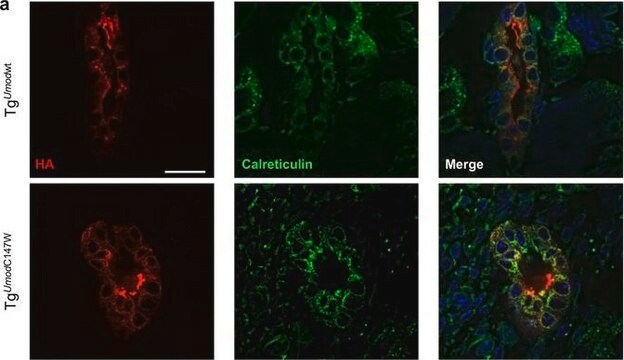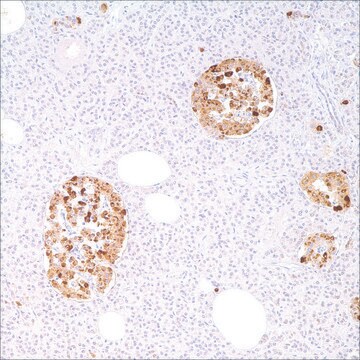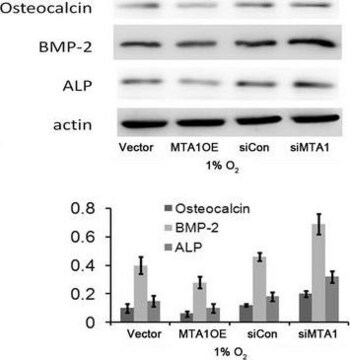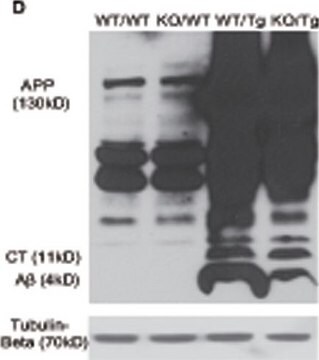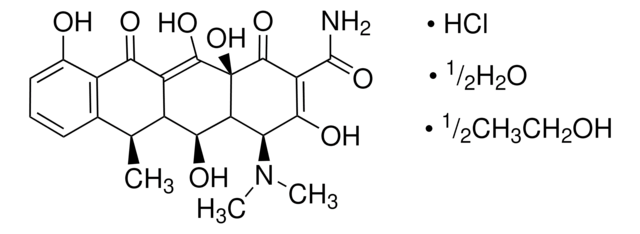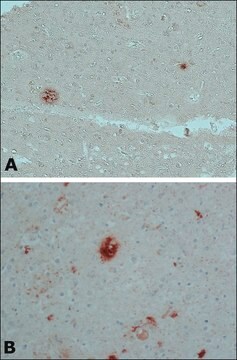MAB5268
Anti-Chromogranin A Antibody, clone LK2H10
clone LK2H10, Chemicon®, from mouse
Sinónimos:
CgA, Pituitary Secretory Protein I
About This Item
Productos recomendados
biological source
mouse
Quality Level
antibody form
purified immunoglobulin
clone
LK2H10, monoclonal
species reactivity
porcine, pig, monkey, rat, human, mouse
should not react with
guinea pig, rabbit, sheep
manufacturer/tradename
Chemicon®
technique(s)
immunohistochemistry (formalin-fixed, paraffin-embedded sections): suitable
western blot: suitable
isotype
IgG1κ
NCBI accession no.
UniProt accession no.
shipped in
wet ice
target post-translational modification
unmodified
Gene Information
human ... CHGA(1113)
General description
Specificity
Application
A 1-10 μg/mL concentration of a previous lot was used in IH.
Optimal working dilutions must be determined by end user.
Packaging
Quality
Western Blot Analysis:
1:1000 dilution of this lot detected Chromogranin A on 10 μg of Mouse Pancreas lysate.
Target description
Linkage
Physical form
Analysis Note
Pancreas, adrenal gland, bowel and thyroid tissues Immunoblot: PC12 cell lysate, human pancreatic tissue
Other Notes
Legal Information
Optional
signalword
Danger
hcodes
Hazard Classifications
Repr. 1B
Storage Class
6.1D - Non-combustible acute toxic Cat.3 / toxic hazardous materials or hazardous materials causing chronic effects
wgk_germany
nwg
flash_point_f
Not applicable
flash_point_c
Not applicable
Certificados de análisis (COA)
Busque Certificados de análisis (COA) introduciendo el número de lote del producto. Los números de lote se encuentran en la etiqueta del producto después de las palabras «Lot» o «Batch»
¿Ya tiene este producto?
Encuentre la documentación para los productos que ha comprado recientemente en la Biblioteca de documentos.
Nuestro equipo de científicos tiene experiencia en todas las áreas de investigación: Ciencias de la vida, Ciencia de los materiales, Síntesis química, Cromatografía, Analítica y muchas otras.
Póngase en contacto con el Servicio técnico